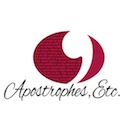

Abstract or concrete? Making your writing clearer
Another useful way to divide nouns is to separate them into the categories of abstract and concrete. This does not stop them being proper or common; it is simply another way to look at them. This means that proper nouns can also be abstract or concrete, and common nouns can be abstract or concrete.
Abstract nouns have one key characteristic: we cannot see or touch them, although we can experience them. The usual definition is that abstract nouns are concepts, qualities and states (including activities) that we cannot pick up through our five physical senses: they cannot be seen or touched, or heard, tasted or smelt. Abstract nouns include emotions and human qualities, divisions of time, states of being. Words such as happiness, anger, bravery and honesty are abstract nouns. Monday, morning and autumn are abstract nouns, and life and death are abstract nouns. Birthday, reunion, work and meeting are also abstract nouns.
You might think that you can see happiness or bravery, autumn and mornings, birthdays, work and meetings. But when you think about it a little more deeply, you begin to see that these are ideas or concepts that we apply to other physical events. You see someone smiling; you do not actually see happiness but evidence of it. Similarly, we might see someone running into a dangerous situation to help someone; we call this bravery, but we cannot see bravery in isolation. What we see are examples of it. Morning is a concept; it’s the name we give to the early part of the day. We see the sun rise over the horizon and towards its zenith (or we actually see the effect of the of earth’s turning) but we cannot touch a morning any more than we can reach out and touch or smell or taste Monday. We see leaves fall from trees and feel the temperature cool: we call this autumn, but it is a concept we apply to a group of observations. We see a group of people in a room and we call this a meeting, but meeting is simply a concept we apply to describe what a group of people are doing. I see a number of files on my computer screen, unwashed dishes or a pile of clothes waiting to be ironed: I call all of these things work but I cannot smell or taste or touch work itself; work is simply a concept I apply to these things. All the names we give to our activities are abstract nouns, from football (the concept for a group of people running around a field with a ball, behaving according to certain rules) to meditation. You might think you are seeing the activity itself but we really are seeing a group of people or single behaving in a particular way, and our way of thinking about and categorising their behaviour, our idea of what they are doing, is abstract.
One handy feature of abstract nouns is that many of them end in particular letters. If you see the ending –ance, –ence, –hood, –ics, –ism, –ment, –ness or –tion, you are looking at an abstract noun. (There are some other typical abstract noun endings but these are the most common.) Abstract nouns that are the names of activities or periods of time tend not to have these endings. Emotions, on the other hand (and note the ending of emotion!), do very often have them: sadness, happiness, joyfulness, aggravation . . .
Concrete nouns are easier to define: like concrete, they are things we can see and touch (and feel, smell or taste). Any noun that is not an abstract noun will be a concrete noun.
Oxygen is a tricky one: we cannot see, taste, feel, hear or smell it. But even though it odourless and invisible in everyday life, it is not an abstract noun. We can cool oxygen down to liquid form, where it can be seen and touched. We would not consider water an abstract noun, because we can see, feel and taste it – although water, like oxygen, can be made into a colourless, odourless gas when we boil it to create water vapour. Everything that exists in the physical world can be heated to the point where it becomes a gas: the fact that things can exist in a state (a gas) where our senses will not pick them up does not make them abstract if they are capable of existing in a state (solid or liquid) where we can. Think of it as the point where chemistry meets grammar . . .
There is one further important thing to know about abstract nouns: don’t overuse them. Because abstract nouns describe things that are, well, abstract, they are harder for readers and listeners to comprehend. When your writing has a lot of abstract nouns, it tends to become waffly. People writing business documents or giving speeches often feel they need to use longer words or say things in a longer way to make their topic important: this is just not so. No one ever said ‘I have endless time to listen to you/read what you have written . . . make it as long as you like’. And yet we behave as if they do all the time! One way to make sure your writing is shorter is to avoid abstract nouns (or just words ending in –ance, –ence, –hood, –ics, –ism, –ment, –ness or –tion). Very often, we can improve writing by turning abstract nouns into a verb (and I will start writing about verbs in a few weeks). Just strike the endings out and see what changes this forces you to make:
For example:
Your understanding and cooperation during the implementation is greatly appreciated as we make the transition through to the new system.
becomes much shorter and sharper with its abstract nouns removed:
We will greatly appreciate it if you understand and can cooperate with us as we implement the new system.
If you didn’t spot understanding as an abstract noun, it doesn’t matter: the changes to cooperation and implementation would force the change. Even if just implementation changed, the sentence is still improved:
Your understanding and cooperation as we implement the new system are greatly appreciated.
(Once implementation loses its ending and becomes implement, the need to waffle on about transition – another abstract noun – is completely gone, and that part of the sentence can simply be cut out entirely.)
Try converting a few abstract nouns of your own today!

If you have found this post interesting, you can find a full index to my other posts on the index page. To be notified when I post a new topic, follow me on Facebook! If you have any particular questions you’d like me to answer in future posts, just send me a message. I’m always interested to learn what people think, and how you came across this site, so please post a comment.
If you think you would be interested in either my complete grammar course or an individual customised online course (particularly suited for people who don’t live in Melbourne), just click your preferred option.
Pingback: Are Days Of The Week A Proper Noun? – Ploverbirds.com
Pingback: How Do You Teach Abstract Nouns? – Fallsgardencafe